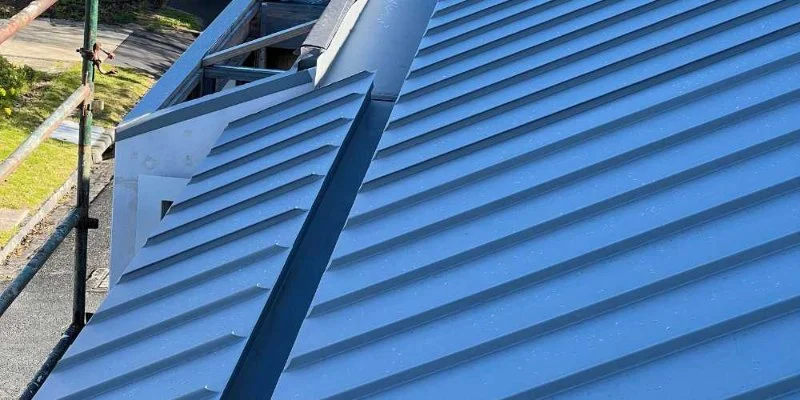
Everything You Need to Know About Roof Warranties
When investing in a new roof or roof repairs, one of the most important things to consider is the warranty that comes with it. Roof warranties provide protection for both homeowners and contractors, ensuring that if something goes wrong, you're covered. However, roof warranties can be confusing, with many different types, terms, and conditions. In this article, we will break down everything you need to know about roof warranties to help you make an informed decision before you sign on the dotted line.
- Types of Roof Warranties
- What Coverage Does a Roof Warranty Provide?
- Roof Warranty Terms and Conditions
- Common Issues Covered by Roof Warranties
- How to Maintain Your Roof Warranty
- How to Choose the Right Roof Warranty
Types of Roof Warranties
Roof warranties generally fall into two main categories: manufacturer warranties and contractor warranties. Understanding the difference between these two types is essential for ensuring proper coverage for your roof.
1. Manufacturer Warranty
Manufacturer warranties cover the roofing materials used during installation. These warranties generally last for a long period (often 20-50 years) and protect against defects in the materials themselves, such as manufacturing errors, premature wear, or poor quality materials.
2. Contractor Warranty
Contractor warranties, on the other hand, cover the workmanship and installation of the roof. These warranties typically last between 1-10 years, depending on the contractor and the specific services provided. A contractor warranty ensures that if the roof is improperly installed or suffers from any mistakes made during installation, the contractor will address the issue.
3. Full System Warranty
Some roofing companies offer a full system warranty, which covers both the materials and the installation. This type of warranty offers the best protection, as it ensures that both the materials and the installation are guaranteed for an extended period of time. Full system warranties are typically offered by trusted roofing manufacturers and contractors who work together to provide comprehensive coverage.
What Coverage Does a Roof Warranty Provide?
Understanding what is and isn’t covered by your roof warranty is crucial. Warranties vary by type, but in general, they will cover certain issues and exclude others.
1. Material Defects
Manufacturer warranties often cover defects in the roofing materials themselves. For example, if shingles warp, crack, or deteriorate prematurely, the manufacturer will replace them at no cost. This is the primary benefit of a manufacturer warranty.
2. Installation Errors
If your roof is improperly installed, leading to leaks, damage, or other issues, a contractor warranty should cover the repair or replacement costs. Some contractor warranties also cover the labor costs associated with fixing installation errors.
3. Leaks and Water Damage
Roof leaks are often covered under both manufacturer and contractor warranties, but there may be specific conditions to meet. For example, some warranties may only cover leaks caused by material defects or installation mistakes, while others may cover damage caused by extreme weather conditions.
Roof Warranty Terms and Conditions
Before signing any lease or agreement, it’s essential to read and understand the terms and conditions of your roof warranty. These details can influence how much protection you will receive if issues arise. Here are some key factors to consider:
1. Coverage Period
The length of coverage is one of the most important aspects of a roof warranty. While manufacturer warranties can extend up to 50 years, contractor warranties tend to be much shorter. Understanding the duration of each warranty ensures that you're aware of how long you're protected.
2. Transferability
If you plan to sell your home, it’s important to find out if your roof warranty is transferable to new homeowners. Many warranties are transferable, but you may need to pay a small fee for the transfer. A transferable warranty adds significant value to your home, as it reassures buyers that they won’t need to worry about roof repairs soon after moving in.
3. Exclusions and Limitations
Be sure to review the exclusions and limitations listed in the warranty. Some warranties exclude damage caused by certain natural disasters (e.g., hurricanes, earthquakes), improper maintenance, or neglect. Understanding these exclusions helps you know what’s covered and what’s not, and can help you avoid costly repairs in the future.
Common Issues Covered by Roof Warranties
Roof warranties can cover a variety of problems, but it's essential to know which issues are typically covered. Some of the most common problems covered under a roof warranty include:
1. Premature Roof Aging
Roofing materials should last a certain number of years, and if your roof shows signs of aging much sooner than expected, it may be covered under a manufacturer warranty. This can include premature fading, cracking, or deterioration of shingles or tiles.
2. Leaks and Water Damage
If a roof begins to leak due to manufacturing defects or improper installation, it may be covered by the warranty. Leaks can cause water damage to the interior of your home, so it’s important to address them quickly to prevent further damage.
3. Flashing and Sealant Issues
Flashing is an essential part of roof protection, directing water away from vulnerable areas. Flashing problems, such as poor installation or faulty materials, can lead to leaks and water damage. Many roof warranties cover flashing issues caused by defects or improper installation.
How to Maintain Your Roof Warranty
To ensure that your roof warranty remains valid, it’s essential to maintain your roof properly. Regular inspections, cleaning, and prompt repairs can prevent issues from arising and keep your warranty intact. Here’s how you can help maintain your roof warranty:
1. Regular Inspections
Have your roof inspected at least once a year, especially after severe weather events. Regular inspections help catch minor issues before they turn into major problems, ensuring that your roof stays in good condition throughout the warranty period.
2. Prompt Repairs
If you notice any damage, such as missing shingles, leaks, or cracks, report and repair them immediately. Delaying repairs can result in further damage, potentially voiding your warranty.
3. Proper Maintenance
Maintain your roof by keeping gutters clear, trimming overhanging branches, and removing debris. Regular upkeep ensures that your roof is performing at its best and can help extend its lifespan.
How to Choose the Right Roof Warranty
Choosing the right roof warranty depends on your needs and preferences. Here are a few things to consider when selecting a warranty:
1. Reputation of the Manufacturer and Contractor
Choose a roofing contractor and manufacturer with a solid reputation for quality products and services. Look for companies with a history of offering reliable warranties and customer satisfaction.
2. Warranty Coverage
Ensure the warranty offers sufficient coverage for both materials and workmanship. A full system warranty is typically the best option, as it covers both the roofing materials and the installation process.
3. Terms and Conditions
Read the terms and conditions carefully, and be aware of any exclusions, limitations, and the length of coverage. Choose a warranty that offers the best protection for your roof and aligns with your needs.
If you need more guidance on roof warranties or are looking for expert roof services, consider visiting Total Roofing Hub. We offer expert advice and services to ensure that your roof stays in top condition throughout its lifespan.

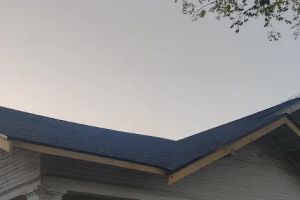
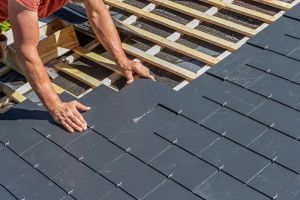
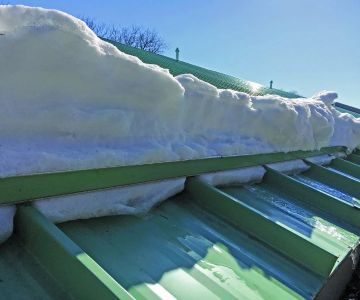
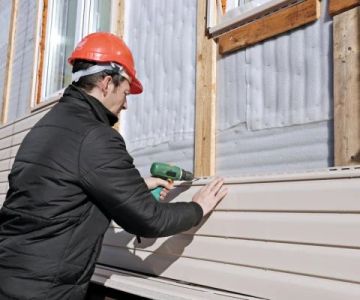
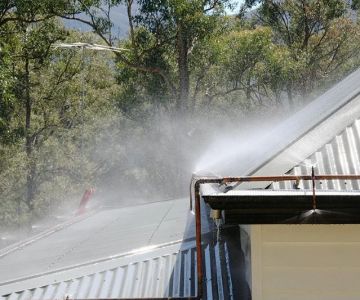
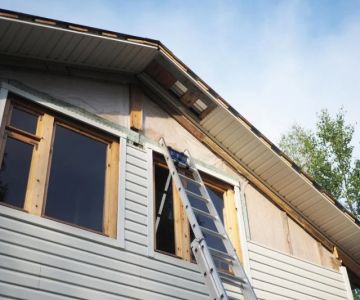
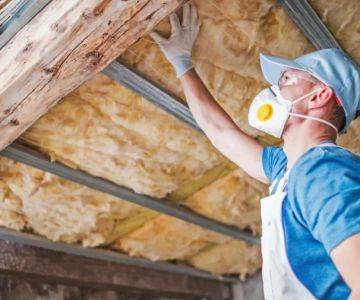
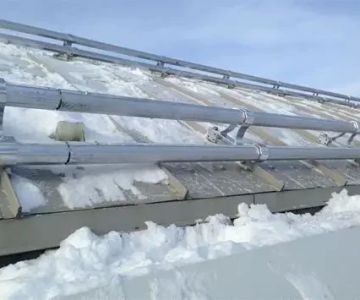
 Skyline Designs Roofing5.0 (99 reviews)
Skyline Designs Roofing5.0 (99 reviews) Perfect Roofing Installations4.0 (60 reviews)
Perfect Roofing Installations4.0 (60 reviews) Dog Tags Construction LLC4.0 (16 reviews)
Dog Tags Construction LLC4.0 (16 reviews)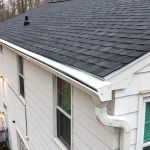 Gutter Shutter of Central Maryland5.0 (9 reviews)
Gutter Shutter of Central Maryland5.0 (9 reviews) Sam Cline Handyman Services4.0 (37 reviews)
Sam Cline Handyman Services4.0 (37 reviews) Paramount Builders Inc.4.0 (302 reviews)
Paramount Builders Inc.4.0 (302 reviews)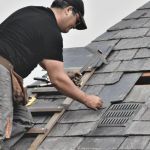 Should I Repair or Replace My Roof?
Should I Repair or Replace My Roof? Top 10 Signs Your Roof Needs Immediate Repair Before It’s Too Late
Top 10 Signs Your Roof Needs Immediate Repair Before It’s Too Late The Pros and Cons of Vinyl Siding: Is It the Right Choice for Your Home?
The Pros and Cons of Vinyl Siding: Is It the Right Choice for Your Home? How to Choose a Reliable Roofing Contractor Near You – Expert Tips
How to Choose a Reliable Roofing Contractor Near You – Expert Tips Top 10 Signs Your Roof Needs Immediate Repair You Shouldn’t Ignore
Top 10 Signs Your Roof Needs Immediate Repair You Shouldn’t Ignore How to Spot Hail Damage on Your Roof | Quick Guide for Homeowners
How to Spot Hail Damage on Your Roof | Quick Guide for Homeowners